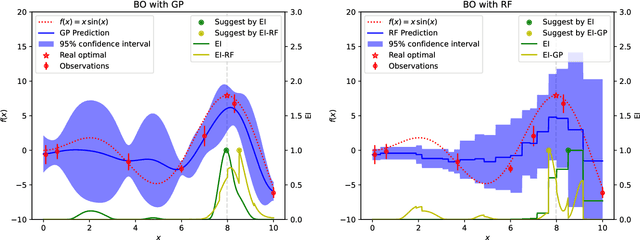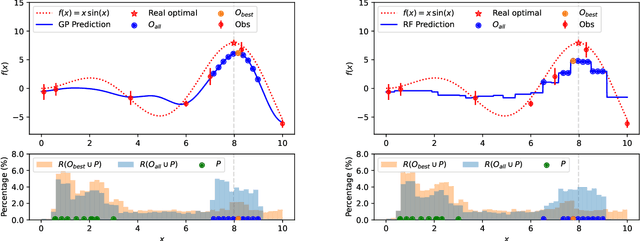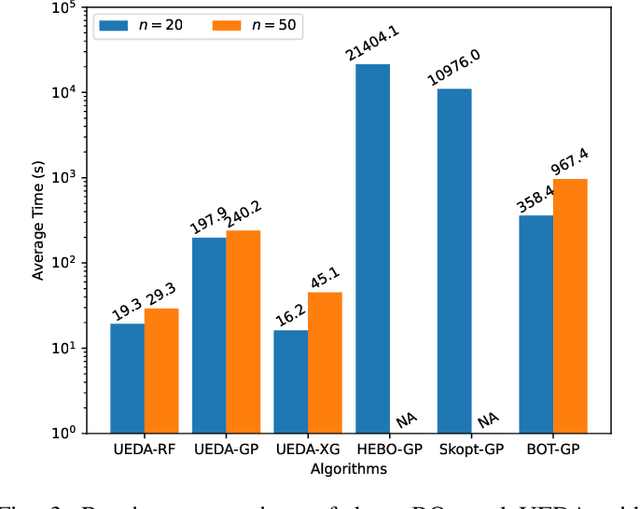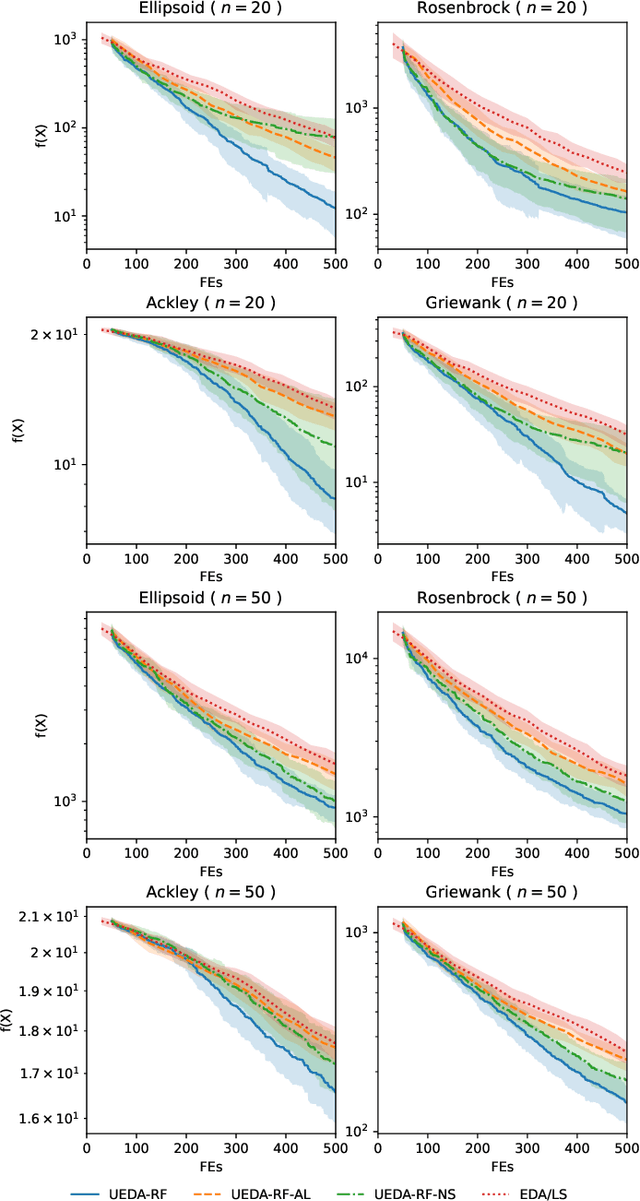Model Uncertainty in Evolutionary Optimization and Bayesian Optimization: A Comparative Analysis
Paper and Code
Mar 22, 2024



Black-box optimization problems, which are common in many real-world applications, require optimization through input-output interactions without access to internal workings. This often leads to significant computational resources being consumed for simulations. Bayesian Optimization (BO) and Surrogate-Assisted Evolutionary Algorithm (SAEA) are two widely used gradient-free optimization techniques employed to address such challenges. Both approaches follow a similar iterative procedure that relies on surrogate models to guide the search process. This paper aims to elucidate the similarities and differences in the utilization of model uncertainty between these two methods, as well as the impact of model inaccuracies on algorithmic performance. A novel model-assisted strategy is introduced, which utilizes unevaluated solutions to generate offspring, leveraging the population-based search capabilities of evolutionary algorithm to enhance the effectiveness of model-assisted optimization. Experimental results demonstrate that the proposed approach outperforms mainstream Bayesian optimization algorithms in terms of accuracy and efficiency.
 Add to Chrome
Add to Chrome Add to Firefox
Add to Firefox Add to Edge
Add to Edge